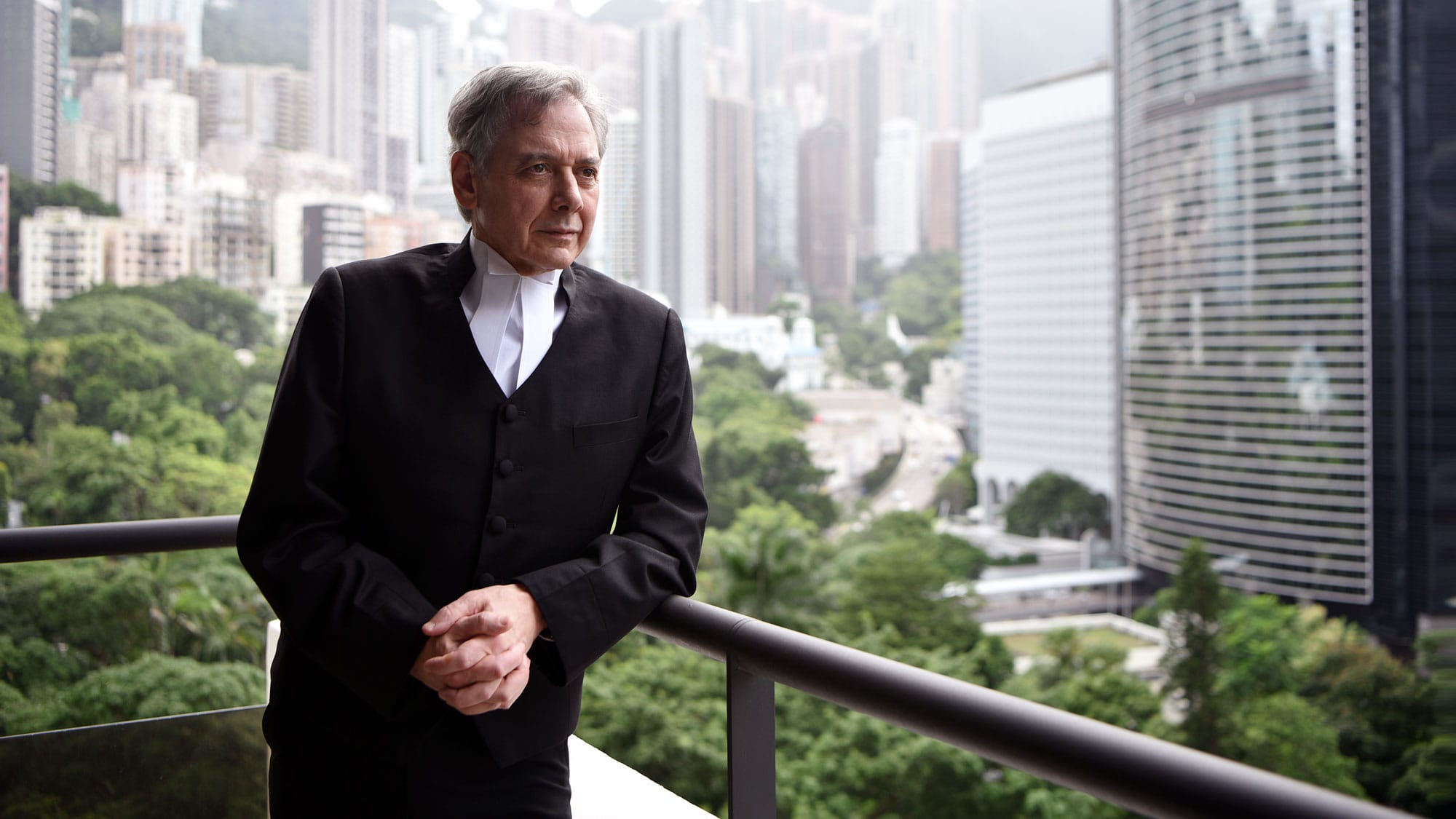
Long before he became a justice, Kevin Zervos had been like many undergraduates – conflicted about his choice of career.
He had a keen interest in both science and law, but he was unsure of the path to take. In the early 1970s, the environment was emerging as a serious societal issue, as was human rights. So, he chose to study and graduated in both science and law, with a half-formed notion of practising environmental law.
The watershed, however, was his law-student experience with the Springvale Monash Legal Service (which is today the law faculty’s clinical program together with Monash Law Clinics). “That was the breakthrough – a turning point in my life, and probably in my career as a lawyer,” he says.
“It put what you learned in theory into real-world practice. You were helping real people with real problems, people who otherwise could not afford legal representation. It made the law personal and human.”
Fast-forward four decades, and that experience has shaped a distinguished, albeit circuitous, career: a prominent prosecutor of white-collar crime, vocal champion of human rights, mentor of young lawyers and, today, a justice of appeal of the Court of Appeal of Hong Kong.
Along the way, Zervos was a pioneering prosecutor with the Commonwealth Director of Public Prosecutions, which was set up in the early 1980s after the notorious ‘bottom of the harbour’ tax avoidance scandals. He served as general counsel to the NSW Independent Commission Against Corruption (ICAC), before joining the Commercial Crime Unit in the then attorney general’s chambers in Hong Kong in 1992.
Second chances
Zervos prosecuted many high-profile cases, including that of a triad hit squad that assassinated a key witness in one of the world’s biggest tobacco-smuggling cases. It was in Hong Kong that he also came to prominence as a human rights advocate with initiatives to tackle international human trafficking, enforced labour and abuse of domestic helpers.
In 2011, when appointed director of public prosecutions in Hong Kong, he immediately set about making the justice system more transparent, especially to younger people. He advocated compassion for some first-time offenders of minor crimes. He said at the time: “It is important to give a person a second chance and not to break their spirit. The chances are they don’t reoffend and you won’t see them in the criminal court again.”
Reflecting on this today, Zervos is unequivocal in attributing his perspectives on law and life to his formative years at Monash University.
"If you had told me at university that I would end up working for government as a lawyer, I would have shaken my head in disbelief."
“Monash stood apart as a tertiary institution because it was progressive and innovative. And I think, being located where it was, we were forced to deal with one another more closely.
“The institution had a connection with students, and students had a connection with each other. So I gained a lot from the friends I made at Monash, and also the different faculties I attended. At one stage, I was taking subjects in law, science and arts, which were all very different. I majored in psychology in my science degree, and took a minor unit in sociology. So at one stage, I was attending all three faculties. That experience, together with my upbringing, made me publicly spirited, and my career followed suit.”
On leaving university, Zervos worked for a short time as a solicitor, intending to use his science degree in planning and environmental law. He fell into criminal law after securing a short-term contract with a special prosecutor’s office, which was set up in Melbourne in the aftermath of the bottom-of-the-harbour cases. Then, as new state and federal anti-corruption bodies were established, he found himself increasingly bound to quite a different career path to what he had envisaged.
“If you had told me at university that I would end up working for government as a lawyer, I would have shaken my head in disbelief. But all of these positions through my career have been about serving the public good, so my ideals were the same.
“I have always sought positions that serve the public interest in the administration of justice. In fact, when I finished as director of public prosecutions here [Hong Kong], I had a number of positions offered to me … but I was more interested in continuing to serve the community through the law as a judge. It was the path I was on, and I wanted to stay on.”
Back to study
Cementing this was his decision in 2006 to undertake a master’s degree in human rights at the University of Hong Kong. It was hard juggling a heavy workload and study, but he felt strongly about the need to be better-equipped: “There were constitutional challenges taking place, and I had a lot of cases involving human rights arising from challenges to the criminal law jurisdiction. So I was arguing all these cases on individual legal points without a good overall appreciation of how human rights has been developed and fashioned, especially in its global context.”
Zervos’ dissertation on human rights and judicial activism covered constitutional remedies that can be used to address human rights violations under Hong Kong’s mini constitution, the Basic Law.
He says the experience hammered home the mantra that ‘you are never too old to learn’.
“I gained a lot from those two years. I gained tremendous new insight that made me a better lawyer and, I think, a better person.”
"In my own small way I have been an agent of change, and fulfilled that ambition to serve the public good.”
Mentoring young lawyers has given Zervos the opportunity to reflect on his career and life, and to advocate taking advantage of the opportunities and being energised by the journey that university provides.
He often has young lawyers approach him for advice because they’re not getting any work. “I ask what are they doing about it. Are they going to court to see what’s happening, joining legal interest groups or bodies, showing real interest in the law? You have to make the future happen.”
After university, Zervos says he applied for several jobs, trying unsuccessfully to get a start in environmental law. He was discouraged at the time, but now he’s grateful he missed out: “When something doesn’t go your way, you learn it was probably for the best.
“When an opportunity arose to enter this area of the law, I took it, and discovered something extremely rewarding. In my own small way I have been an agent of change, and fulfilled that ambition to serve the public good.”
With several years to compulsory retirement, Zervos still has a long to-do list. He’d like to see laws simplified and the law made more accessible, believing it’s become too complex, too costly, and is encumbered by too many institutions.
“And from a personal perspective I still seek improvement in making the right decisions, to try and make sure we keep following a considered and principled approach as the law responds to social change. The common law is a continuing conversation from one generation to the next, where legal principles and fundamental rights and freedoms are constantly being discussed, defined and developed.
“That’s the journey. You start learning, and you never stop.”
Scholarships for disadvantaged students
Justice Kevin Zervos has maintained his links to Monash, particularly the Faculty of Law, through hosting law students visiting for international moot court competitions. He also has had a number of law students from Monash act as his marshal, to provide them with a perspective of the law that they would not otherwise receive, and in the context of another jurisdiction.
Zervos is also involved with a scholarship program that allows promising Hong Kong students experiencing disadvantage to study at Monash. Alumni in Hong Kong, through the University, set up the scholarship program in 2015 out of a desire to give something back to the Hong Kong community by providing a young person the benefit of a Monash education. The scholarship provides for accommodation and tuition fees.





